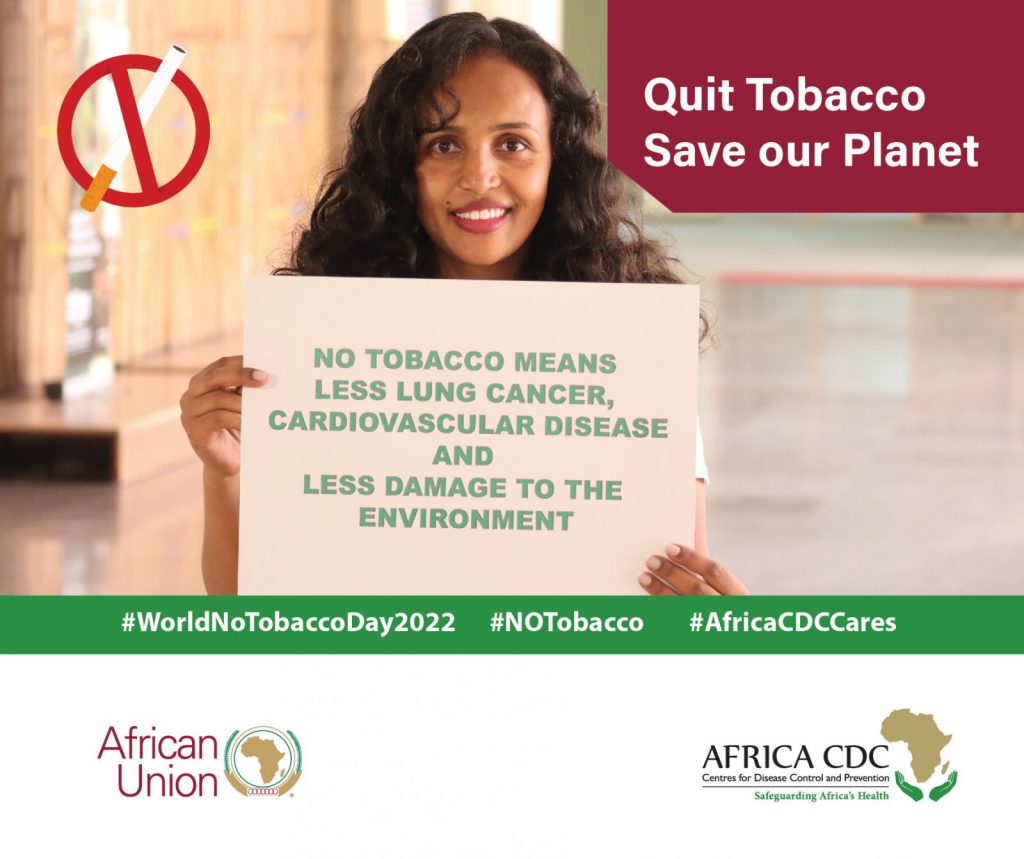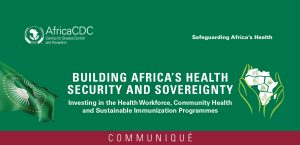The tobacco epidemic kills more than 8million people around the world each year. The trend of tobacco cultivation in Africa has increased over the years, translating into increased tobacco use on the continent. An increase of 52% in cigarette consumption was observed in Africa between the years 1980 and 2016. The number of tobacco users in Africa increased by 73 million in 2018 from 64 million adult users in 2000[1]. 48.2% of youth in the African Region are exposed to second-hand tobacco smoke in public places.[2]
Given sub-Saharan Africa’s youthful population the increased presence of the tobacco industry, the number of tobacco users is growing. The financial power has enabled transnational tobacco companies to interfere in tobacco control and slow down policy implementation efforts in sub-Saharan Africa.[3]
The impact of the tobacco industry on the environment goes beyond the effects of the smoke that cigarettes put into the air. The whole life cycle from growing tobacco plants to the disposal of cigarette butts negatively impacts the environment with consequences that may include: the use of fossil fuels, deforestation, greenhouse gases emission and dumping or leaking of cigarette waste into the natural environment[4]. In addition, tobacco cultivation competes with cultivation of staple food crops such as: cassava, rice, millet, leading to high rates of food importation, high food prices at market and hence making food insecurity and associated diseases unavoidable[5]. Until now the aspects of the tobacco control picture have relatively received less attention from researchers and policy makers[6].
The choice of this year’s theme and the campaign is to raise awareness in public across the continent on the environmental impact of tobacco throughout the whole life cycle from growing to disposal. The campaign will also draw the attention of policymakers on the need to develop policies that go beyond targeting tobacco use and protecting non-tobacco users from second and third-hand smoke to the broader environmental impact of tobacco.
On 28th April 2022, African Union Member States, meeting in Addis Ababa, have validated the “Africa CDC 5 years’ strategy on Non-communicable diseases and Injuries prevention and control and Mental health promotion”. The strategy contains six strategic objectives for Africa CDC plan of support for Member States and of particular relevance for the environmental protection, strategic objective 3 “Align Member States, Regional Economic Communities and partners to establish and coordinate multi sectoral action on NCDs’’ with priority interventions to i) build or strengthen Member States capacity to address social and environmental determinants of NCDs in addition to conventional risk factors and ii) promote local and regional initiatives targeting risk factors for NCDs in schools, workplaces, and neighborhoods to promote healthy lifestyles early in life. During the validation meeting, Member States recognized the crucial interrelation between the environment and NCDs and the need to address industry interference to reduce NCDs risk factors, emphasising tobacco.
As we continue to shape the ‘’Africa we Want’’, we need to learn from the COVID 19 pandemic to build and invest in our health systems and collaborate in a multi-sectoral approach toward a “new public health order” in Africa that will help to lessen the effects of current and future pandemics on our lives and livelihoods. Actions across tobacco quitting will produce benefits for both our environment and health ‘’ we hope it gives tobacco users one extra reason to quit.’’
[1] Status of tobacco production and trade in Africa. Geneva: World Health Organization; 2021. License: CC BY-NC-SA 3.0 IGO
[2] Facts on tobacco use in the African region. WHO regional office for Africa, 2012
[3] Landscape of tobacco control in sab Saharan Africa, 2022
[4] Moerman JW, Potts GE. Analysis of metals leached from smoked cigarette litter. Tobacco Control. 2017;20(Suppl 1):i30-i35
[5] . Femi-Pearse D. Aspects of smoking in developing countries in Africa. N Y State J Med. 1983 Dec;83(13):1312-3. PMID: 6582385
[6] Tobacco and its environmental impact: an overview. Geneva: World Health Organization; 2017. Licence: CC BY-NC-SA 3.0 IGO.
About Africa CDC
Africa CDC is a specialized technical institution of the African Union which supports Member States in their efforts to strengthen health systems and improve surveillance, emergency response, prevention and control of diseases. Learn more at: https://africacdc.org — END —







